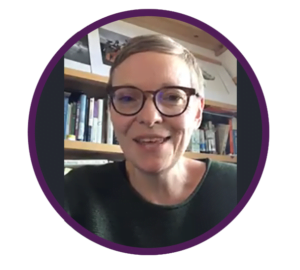World Mental Health Day 2021 – A blog by Together CEO, Linda Bryant

 What could be more poignant than World Mental Health Day on 10th October 2021 following a week where over 500,000 people in the UK were facing severe financial hardship due to the cut in universal credit.
What could be more poignant than World Mental Health Day on 10th October 2021 following a week where over 500,000 people in the UK were facing severe financial hardship due to the cut in universal credit.
We have known for a very long time the effects that poverty has on causing and exacerbating mental distress. Policy decisions by those in power which impact those on the lowest incomes need careful and compassionate thought – otherwise we will continue to see a perpetual cycle of inter-generational suffering for families and individuals who face extreme challenges on a daily basis just to get by.
Parents have to put food on the table for their kids, keep up with their rent, buy school uniforms, pay rising utility bills. And the pandemic has demanded that we all need to be connected over the internet to access things in a different way such as a consultation with your GP. Well, that costs too.
For 2021, the World Federation for Mental Health set their theme as ‘Mental Health in an Unequal World’. We live in societies rife with inequalities and it is significant that October is also Black History Month in the UK. A time for us to understand black heritage and culture and to celebrate the achievements of people from African and Caribbean backgrounds. And a time to also reframe, rethink and change the realities of the inequalities based on ethnicity in people’s experiences of mental distress which have been documented for the last three decades.
The large and growing body of evidence consistently tells us that racism and discrimination people from Ethnic Minorities are subjected to is likely to lead to mental distress. And yet the pathway to mental health care can be unforgiving and unremittingly adverse. Mental distress is under-recognised in primary care settings and yet Black people are four times more likely to be detained under the Mental Health Act than White people. Our experience at Together through our criminal justice services, which is also evidenced through research, is that mental distress experienced by Black people and people from Ethnic Minorities often leads them into contact with the police and the criminal justice system. We have seen significant progress made towards providing mental health support in justice settings to improve the health and justice outcomes for people with a range of vulnerabilities. Despite that though, for many people who are already marginalised and discriminated against due to the colour of their skin, accessing mental health support in a criminal justice setting is the ‘safety net’ for the failure of health and social care services to reach out to them.
Our unequal world is also characterised by other forms of discrimination including gender, sexuality and disabilities.
Our advocacy services at Together work with people who require support to represent their voice and ensure their rights are upheld, including for people who may lack capacity and are some of the most vulnerable people in our communities. It was encouraging to see the importance of advocacy being referenced in the recent amendments to the Mental Health Act (MHA), although within that we also supported the ‘Call for “unequivocal commitment” to improve access to advocacy’. This was in response to concerns that having initially highlighted the role of advocacy, funding might be scaled back due to financial restraints potentially undermining the government’s commitment as set out in the MHA reforms.
Achieving equal access to mental health services is not all about ensuring everyone can see a GP or a mental health professional when they need to, or needing hospital or outpatient treatment. It is about wider care and support in community settings that can help to prevent people reaching a crisis point that we might otherwise call ‘social care’. We see the impact this kind of support offering has in our services whether that’s community support where people can join group sessions and check in with others with lived experience of mental distress or in accommodation services where people can live in a supportive space and potentially move towards living independently. It is about help with things like learning how to cook, budget, getting a job or back into education and reconnecting with family and friends. It’s the day-to-day but important things we can take for granted, that are vital to all of us for our mental wellbeing and that are part of the journey to fulfilling our hopes and dreams.
And that very practical support also plays a critical role in addressing stigma and disparity of opportunity, empowering people experiencing mental distress to be and feel part of wider society, a respected and valuable member of their local communities. But mental health social care has been chronically under-funded for years. And whilst the government’s social care reform agenda is welcome, vital system changes needed for mental health equality must include greater financial support for community organisations and local councils. These changes must also focus on strengthening the public sector equality duty and making systems more accountable for tackling and reducing inequalities. I will be spending World Mental Health Day on Sunday with our talented and dedicated staff in our Norfolk Integrated Housing and Community Support Service and the people who use the service. Across Norfolk, we provide a combination of intensive supported living with g round-the-clock access to help, work alongside people in their own homes and out in the community. It also connects them with other people who have lived experience of mental distress through one to one peer support and peer led groups. Our work in Norfolk, in collaboration with Norfolk County Council and other voluntary sector organisations, is a fantastic example of how we never give up on people to provide them with accessible and equal mental health help and support in the way they want and need it.


